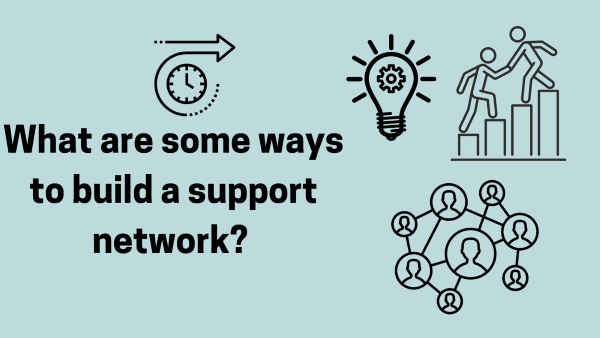
What are some ways to build a support network during a major change?
- Recognizing the Value of a Support System
- How to Establish a Support System
- Maintaining Your Support Network
Introduction
Managing significant life transitions may be difficult and intimidating. A strong support system is essential for preserving mental well-being during life transitions like relocating to a new place, beginning a new career, or going through a major personal change.
This article will discuss practical methods for creating a support network throughout significant life transitions, making you feel connected and encouraged.
Recognizing the Value of a Support System
A robust support system offers emotional, psychological, and occasionally even physical aid during the transition. Strong bonds boost resilience, lessen stress, and give one a feeling of community. In addition, they can provide useful assistance, including guidance, materials, and support—all of which are necessary for adjusting to novel situations.
How to Establish a Support System
1. Determine What You Need
It’s critical to determine your needs before constructing your support system. Do you require a companion for activities, guidance on practical matters, or emotional support? Being aware of your needs will make finding the appropriate support easier.
2. Make Contact with Current Contacts
Reestablish relationships with coworkers, friends, and family first. Inform them of your predicament and tell them you need their help. People are often ready to assist, but they might know you need support once you express your desire.
3. Join Groups Based on Interests
Find online groups, or organizations that share your interests and pastimes. These clubs offer a great way to meet new individuals with similar interests, facilitating deeper ties.
4. Go to social gatherings
Attend seminars, workshops, and networking events relevant to your hobbies or area. These gatherings are excellent for networking with like-minded people and widening your social and business networks.
5. Offer assistance
Volunteering is a great way to make new friends and give back to the community. It gives you a feeling of direction and allows you to interact with people equally committed to assisting others.
6. Get Expert Assistance
Consider joining support groups run by counsellors or therapists. These groups offer a secure setting where you may talk about your experiences and get advice from qualified professionals.
7. Make Use of Social Media
Social networking sites may be effective resources for creating a network of allies. Participate in LinkedIn, Facebook, or online communities centred around your hobbies or life transitions. Participating in these groups may get assistance and guidance from individuals worldwide.
Maintaining Your Support Network
1. Maintain Communication
Ensuring that your support network remains intact requires regular contact. Communicate with connections regularly, though only via phone or brief text. Communication maintains strong and sustaining connections.
2. Offer Support in Kind
Support systems are mutually beneficial. Be prepared to lend a hand and support others in your network. This reciprocal assistance fortifies bonds between people and guarantees that you have a solid support system in case of an emergency.
3. Give Thanks
Express gratitude for the help you’ve been given. Saying “thank you” is a little but effective approach to keeping connections constructive and encouraging.
4. Have Integrity and Honesty
Authenticity promotes deeper ties and trust. By being honest with yourself, you can encourage others to be transparent about their emotions and experiences.
Conclusion
Creating a support network throughout significant life transitions is crucial for overcoming new obstacles and preserving mental health. You may build a strong support network by determining your requirements, contacting current connections, joining interest-based organizations, attending networking events, volunteering, getting professional assistance, and using social media.
To preserve and build your network, remember to be genuine, show thanks, remain in touch, and give back. You may be resilient and confident in life’s upheavals if you have a solid support system.
